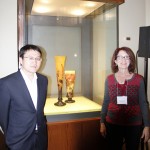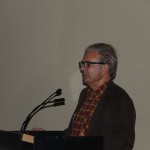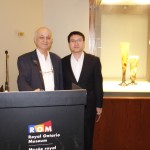Sponsors: Funding and other resources were provided by Baycrest Geriatric Centre, Toronto; University of Toronto Faculty of Medicine (Dean’s office); University of Toronto Institute of Health Policy, Management, & Evaluation; and the Canadian Centre for Health Economics at the University of Toronto
The Fifth Biennial Workshop on Social Capital and Health is one of a series begun under the auspices of Richard Scheffler’s Petris Centre (University of California at Berkeley) and intended to foster international collaboration among researchers interested in improving the definition and measurement of social capital as well as the methodological rigor of studies of social capital and health. The first meeting took place in the fall of 2006 at the Petris Centre at Berkeley and subsequent biennial meetings, hosted by working group members, took place at IRDES (Institute for Research and Information in Health Economics) in Paris (2008), University of Oslo (2010), and University of Padova (2012).
The theme for the 2014 workshop is “Social Capital and Healthy Aging.” Recognizing that aging takes place across the life course, substantive questions in this vein include: How does social capital improve peoples’ health and well-being and how does this change over the life course? If people build up social capital during their healthy years, do they need to draw less on publicly provided health care in years of declining health and is their emotional and mental health (including cognitive functioning) better when they have a stock of social capital upon which to draw? Questions may also involve how communities can build up social capital (whether, for example, this is something which must be done by the individuals in the community or whether there is a role for joint action) and the implications of a community’s experience in accumulating social capital for the health of the members of that community, not just at a point in time but over their entire life course. Other questions can involve the continuum from intra-family informal caregiving, through inter-family based social support, to publicly-provided health care services (both in the community at large and in long-term care institutions, for example) and may involve what the optimum mix appears to be and, if that optimum requires people to invest deliberately in social capital, how they might be encouraged to do so.
List of Papers:
1. Does Taking Part in Social Activities prevent the Disablement Process?
Authors: Nicolas Sirven, Université Paris 5 – Sorbonne Paris Cité & Florence Jusot, Université Paris- Dauphine
Presentation and Discussion: Audrey Kim, University of Toronto
2. The Impact Of Assistive Technology Device Use On The Social Participation Levels Of Older Adults
Presented by: Judith Walsh, University of NC at Charlotte
Discussant: Ofira Schwartz-Soicher, Princeton University
3. How Does Social Capital Matter to Health Status? Evidence from China
Presented by: Xindong XUE, Zhongnan Univ. of Economics and Law
Discussant: Lady Bolongaita, University of Toronto
Presented by: Lorenzo Rocco, University of Padova
Discussant: Dov Chernichovsky, Ben-Gurion University of the Negev
5. Social Interactions and Breast Cancer Prevention
Presented by: Natallia Gray, Southeast Missouri State University
Discussant: Michelle Silver, University of Toronto
6. Inequality of Opportunity in Health in Indonesia
Presented by: Florence Jusot, Université Paris – Dauphine
Discussant: Eric Nauenberg, University of Toronto
7. Social Networks and Health Service Demand – Evidence from the U.S. and China
Author: G. Nathan Dong, Columbia University Mailman School of Public Health
Presentation and Discussion: Nicola Lacetera, University of Toronto
8. How Can Urban Areas Improve Their Community Social Capital? Explorations
Presented by: Sherman Folland, Oakland University
Discussant: Julia O’Mahony, University of Toronto
Presented by: Martin Ljunge, Research Institute of Industrial Economics (IFN)
Discussant: Jo Jacobs, University of Toronto
10. A Theoretical model of the interactions of Social and Health Capital: Implications for the Estimation of Dynamic Structural Models using Panel Data
Presented by: Audrey Laporte, University of Toronto
Discussant: Sherman Folland, Oakland University
11. The enigma of the Association between religiosity and longevity among Jews in Israel
Presented by: Chen Sharoni, Ben-Gurion University of the Negev
Discussant: David Rudoler, University of Toronto
Social Capital As A Protective Factor Against Cognitive Decline And Dementia (Conference Keynote 1)
Presented by: Nicole Anderson, University of Toronto
What Makes Countries Happy? The Role of Health, Wealth and Social Capital (Conference Keynote 2)
Presented by: Richard M. Scheffler, University of California, Berkeley & Lorenzo Rocco, University of Padova
Conference Photos:
References:
1 Ljunge, Martin. Social Capital and Health: Evidence that Ancestral Trust Promotes Health Among Children of Immigrants. Economics and Human Biology. December 2014, Vol. 15, pp. 165-186. Open Access Link: http://dx.doi.org/10.1016/j.ehb.2014.09.001




